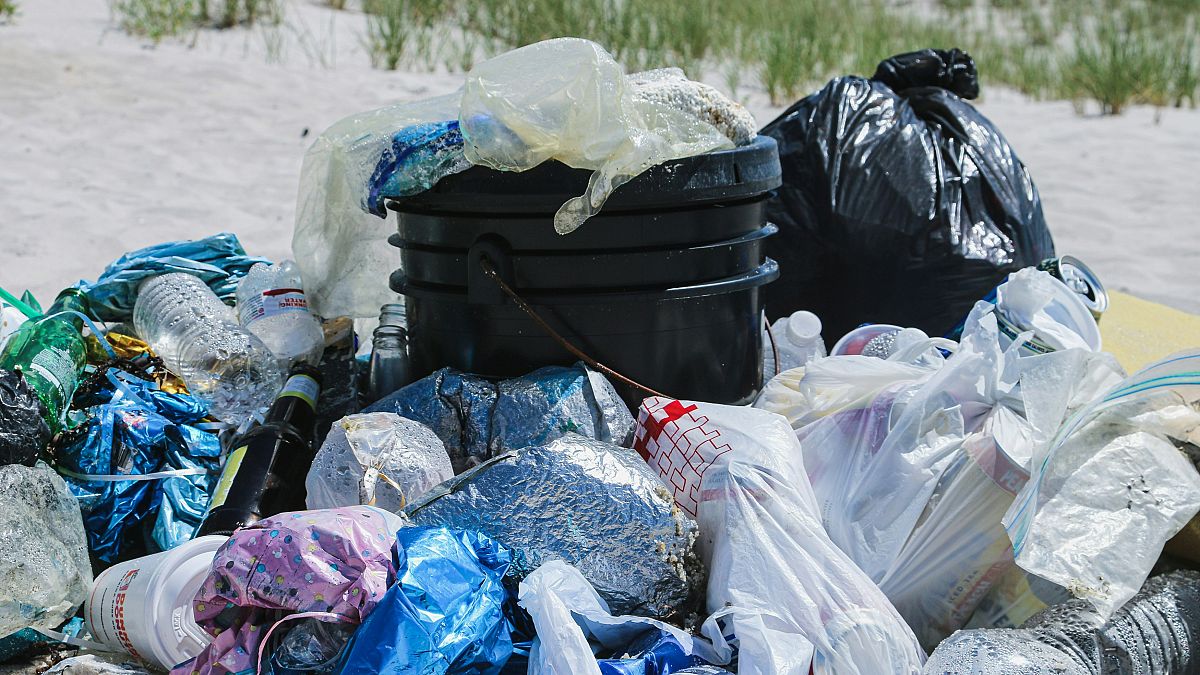Plastic bags are not biodegradable, so they can continue to pollute the environment with harmful microplastics for hundreds of years after use.
Single-use plastic bag bans have successfully reduced plastic bag use and associated litter and pollution, a new study has found.
Bans in five US states and cities with a combined population of around 12 million people have cut single-use plastic bag consumption by about 6 billion bags per year, according to the research.
Adopting a ban that’s similar to the policies in these places could eliminate roughly 300 single-use plastic bags per person per year, according to the report.
Why are single-use plastic bags bad for the environment?
Single-use plastic bags are common sights along roadsides, rivers and coastal areas where many end up after being discarded.
They aren’t just unsightly; they can also be deadly to sea life and harmful to human health.
Littered plastic bags and films (like packaging) are frequently ingested by marine animals and cause more sea turtle and cetacean (whales, dolphins and porpoises) deaths than any other type of plastic.
The production, use and disposal of single-use plastic bags also releases emissions that harm our health and drive global warming.
Plastic bags are not biodegradable, so they can continue to pollute the environment with harmful microplastics for hundreds of years after use.
Plastic bag bans cut litter by one third
A new report has found that bans in New Jersey, Vermont, Philadelphia, Portland in Oregon and Santa Barbara in California have saved the use of as many plastic bags as would circle the earth 42 times.
Nonprofits, government agencies and others have found that plastic bag bans successfully reduced plastic bag litter by at least one-third, with far greater litter reductions in some jurisdictions.
For example, after New Jersey’s ban went into effect in May 2022, Clean Ocean Action’s autumn beach sweeps gathered 46 per cent fewer single-use plastic bags than the April cleanups collected.
Such reductions, particularly in coastal areas, likely reduce the risk plastic bags pose to marine animals, according to the study by Environment America Research and Policy Centre.
Well-designed plastic bag bans encourage shoppers to bring reusable bags or hand-carry what they buy - both sustainable options that minimise waste.
For example, in San Mateo County in California, the proportion of customers with at least one reusable bag at 13 surveyed retailers increased 162 per cent after the county’s ban was implemented. In Mountain View, the proportion of customers using no bag nearly tripled once a ban was imposed.
Most areas with bag bans allow stores to distribute paper bags, providing a fallback if customers forget to bring reusable bags.
Paper bags are biodegradable and widely recyclable, making them preferable to plastic bags, but using new paper bags for every grocery trip is more wasteful than bringing the same set of reusable bags each time.
What are the most effective plastic bag bans?
To reduce plastic pollution, policymakers should adopt strong bans on single-use plastic bags to minimise plastic waste and should close loopholes that weaken the effectiveness of existing bans, the report advises.
Grocery stores, restaurants and retail shops should not be permitted to distribute plastic film bags of any thickness at checkout.
However, those establishments should be permitted and even encouraged to distribute genuinely reusable bags for a suitable fee that prevents them from being treated as single-use bags.
Stores should be required to charge a fee of at least $0.10 (€0.10) for single-use paper bags, the authors add.
















